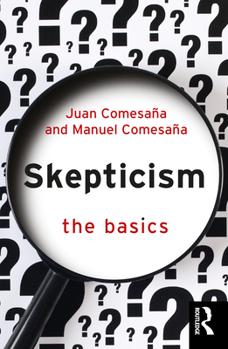Skepticism: The Basics
Select Format
Select Condition 
Book Overview
This book introduces students and other interested readers to the philosophical study of skepticism, a central and long-standing subject in philosophy. The first three chapters cover knowledge, providing the necessary foundation for introducing skepticism in the book's final three chapters. Throughout, the volume addresses basic questions in these two areas, such as:
What are the differences between the three types of knowledge: direct knowledge, knowledge by ability, and propositional knowledge? What is the Gettier problem and why does it resist easy solutions? Why do philosophers still talk about Ren Descartes' techniques for raising doubts about what we can know but have largely forgotten Descartes' attempts to answer these doubts? How do we know that we're not just brains in a vat? Is Pyrrhonian skepticism-the idea that we know absolutely nothing-ultimately self-refuting?With a glossary of key terms and suggestions for further reading, Skepticism: The Basics is an ideal starting point for anyone seeking a lively and accessible foray into the study of epistemology.
Key Features and Benefits:
Cover both traditional topics - like the tripartite conception of knowledge - and emerging issues, like knowledge-first epistemology and concessive responses to inductive skepticism Demystifies an area where beginners frequently get stuck: the difference between common-sense skepticism and philosophical skepticism Clearly explains the important contributions from historical and contemporary thinkers, like Descartes, Hume, Popper, Quine, Dretske, Strawson, Nozick, and Sosa
Related Subjects
Philosophy




